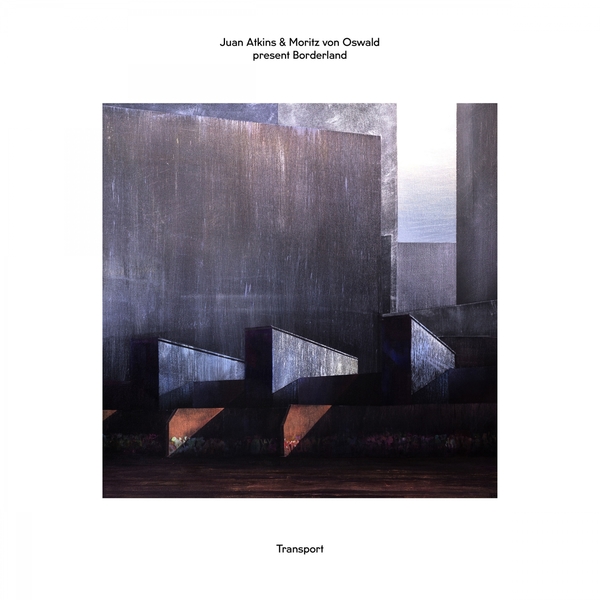When Juan Atkins and Moritz von Oswald collaborated on the first Borderland release in 2013, some corners of the internet decried it as unambitious, claiming that its producers had failed to step out of their comfort zones. In their purported attack on the ethos of our endemic chase for the perennially new, Atkins’ and von Oswald’s ‘uniform’ sequencing and thematic constancy were singled out as the prime suspects. The same criticism could, in theory, be applied to Transport – released to mark the 25th anniversary of Berlin’s Tresor club – however, this would be to fundamentally misinterpret the album’s seeming simplicity. Transport does not represent a paradigm shift nor an experimental frenzy, but what it does offer is a studied and disarmingly beautiful crystallisation of more than two decades of techno, produced by two people who have been at its cutting edge since the very beginning.
If their first record had made it as far as the ‘Mars Garden’, then Transport, with its more pervasive cosmic imagery, spreads the net even wider, creating a thoroughly modern prototype for the music of the spheres. An impeccable sense of proportion dominates throughout, and this is where Atkins’ and von Oswald’s years of experience in some of the world’s best clubs pays off. They are fully aware of the fact that time moves in a particular, omnidirectional way on the dance floor, and they give every element the time and space it needs to register on the listener’s pre-consciousness. The drum patterning is equally flawless, and adds to the album’s curious type of chemically-induced clarity, which is thrown into sharper relief by the disorienting but unmistakably benign synth smears which appear, in varying guises of aqua, in all seven tracks.
Transport follows a quasi-narrative structure, with the somewhat foreboding title track serving as a kind of launch pad for the album’s subsequent travels. The prognosis becomes sunnier from the second track onwards, culminating in ‘Riod’ – an exquisite piece of music, fully deserving of its separate release as an EP, whose melodic riff sounds so organic, so right, that it seems as though it has always been there, reverberating in a quiet harmony with our entire being. Dance music yields many blissful moments, yet few are as powerful as the realisation that a soundtrack totally independent from the music you have been listening to in the club is being performed in your head concurrently. This "other", unwritten music, is what Transport seems to have finally given form to, and this feat alone should qualify its status as a great album.
The influence of jazz and dub is synonymous with Atkins’ and von Oswald’s output, and is present throughout the album, but here it is brought within orbit by taut, wandering basslines and brilliantly defined drums. If the first Borderland release, with its sinister harmonic expeditions, represented the sublime, perpetually teetering on the edge of the unknowable, then Transport, in its glowing wholeness, is the epitome of the beautiful. The fifth track, ‘Merkur’, also deserves special mention. In an album governed by subtlety, its swung bass and the rests, which are so loaded with anticipation, provide a critical moment for the direct outpouring of energy and joy. All in all, Transport embodies a seasoned classicism, with all the connotations of timelessness that that entails, and thus, to the ears of your humble narrator, presents itself as a resounding success.


